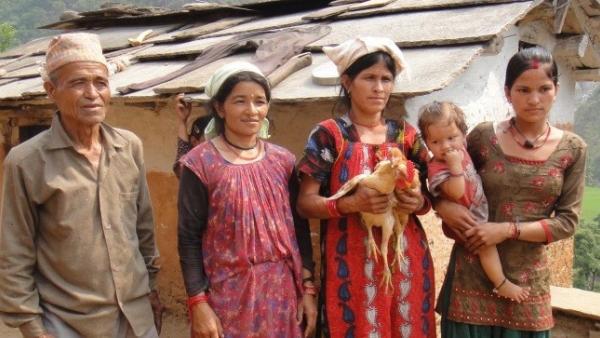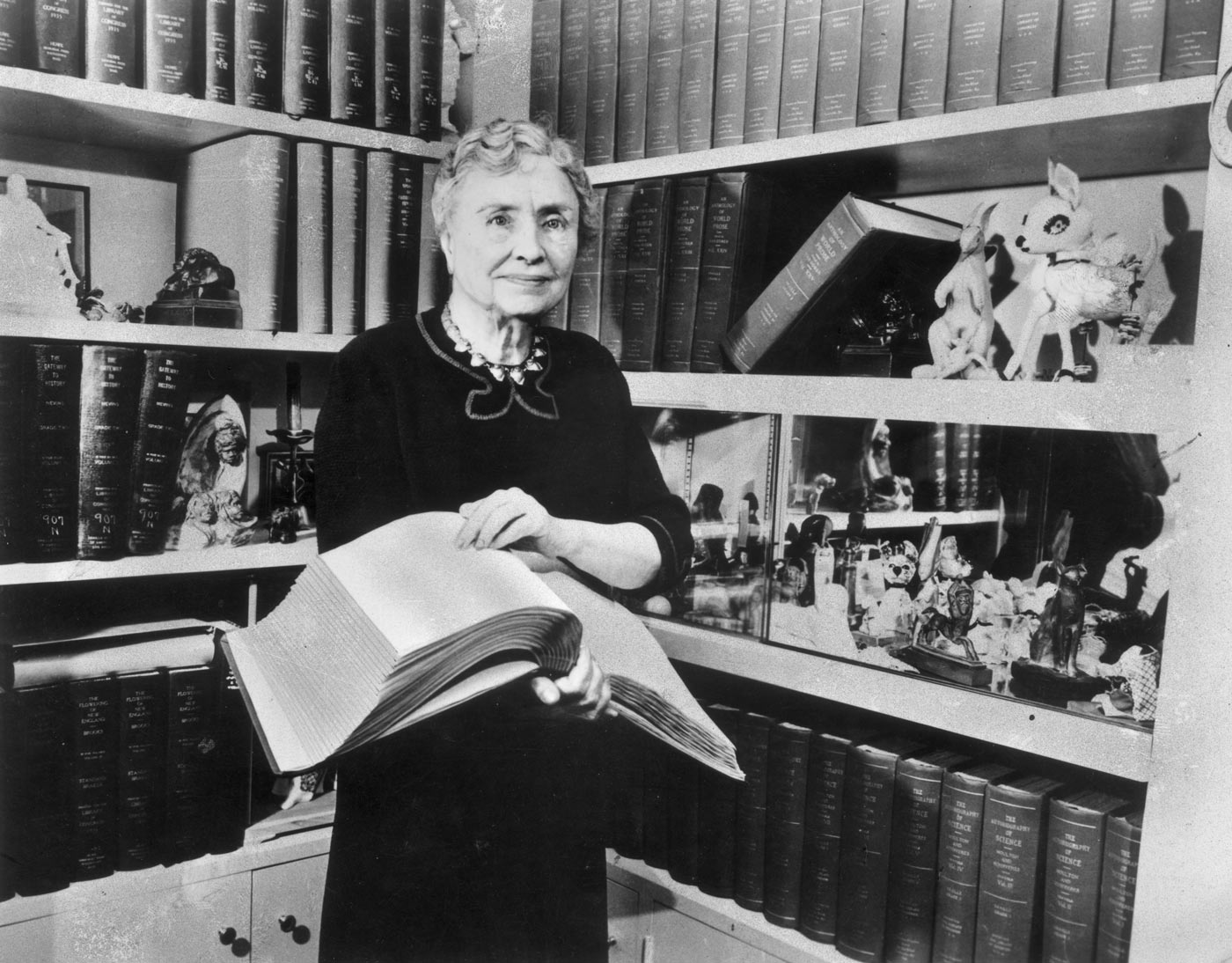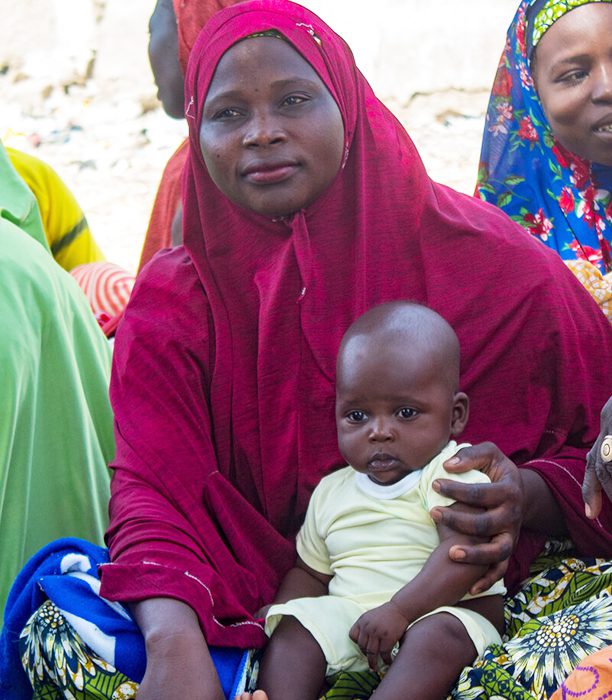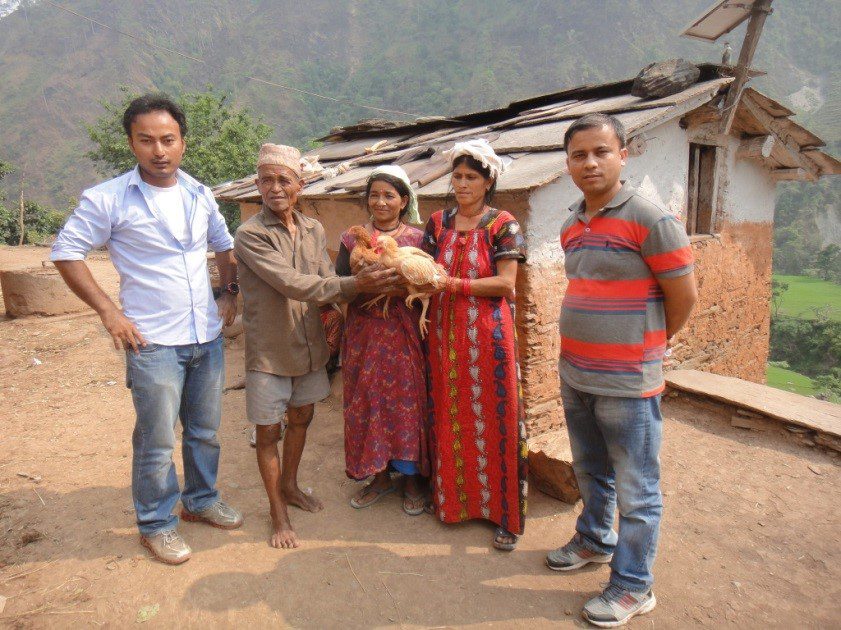
Poultry Handover at Community Level
On June 15, 2014, I headed to Banjh VDC-3 with Nimani Dahal and Nibesh Moktan to monitor the poultry status at field level. We visited some of the households of our beneficiaries to observe the poultry rearing condition and regeneration status.
One of our beneficiaries, Ms. Mina Bohara, mother of a 9 month old daughter, told us that all five of her chickens were killed by a jackal. We asked some of her neighbors if this was true, and all the other nearby households confirmed that her poultry had unfortunately been snatched and killed by a jackal.
However, Mr. Amar Singh Bohara, a man who lived in one of the houses nearby but was not one of our beneficiaries, had done something noteworthy. After seeing and hearing about the poultry rearing training program provided by Suaahara, he became inspired to rear poultry as well. He had bought twelve eggs of improved chicken breeds from our beneficiaries, who had been provided the eggs by Suaahara, in addition to buying a local hen to hatch the eggs. All twelve of the eggs hatched into his first generation of chickens. As of today, he has hatched enough eggs to obtain a second generation of chickens. We were amazed by his energy and devotion to rearing poultry.
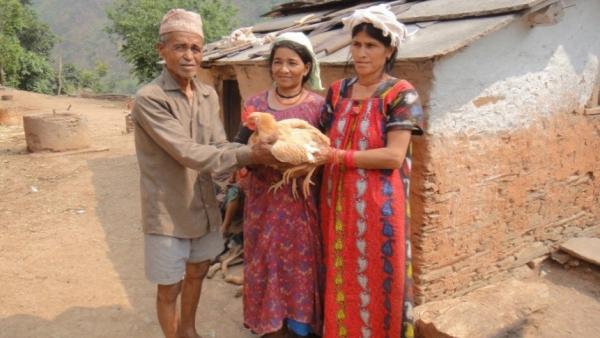
I asked Amar if he would be willing to give some chicks to Mina so that she would have eggs to feed her 9 month old. Protein consumption is crucial to an infant’s brain development, in addition to preventing and minimizing the malnutrition status of the far-western region (FWR). At first he was reluctant, but I convinced him of the importance of our dual purpose breed of poultry to a mother in our Suaahara program. This particular breed produces 180-200 eggs a year, a number that cannot be matched by the local breed of poultry, which is why Suaahara had been distributing it. After learning about the importance of the breed, he was more than willing to give Mina one male and one female chicken of the improved breed.
However, his daughter-in-law, Hansa, was still reluctant about handing over two of their chickens, claiming that the current status of the poultry was due to their own efforts and didn’t want to give them away. Her hesitance to hand over the chickens made sense, but I reminded her of the importance of sisterhood and how Mina’s quality of life would be dramatically improved because of their act of generosity. She ultimately agreed, and the family was happy to give Mina the poultry.
Mina received the two chickens from her neighbors, and she and her mother-in-law, Turka, expressed their enthusiasm about being able to give eggs to Mina’s daughter that would provide her with nutrition and a bright future. Mina and her family expressed their gratitude to their generous neighbors for their kindness.
